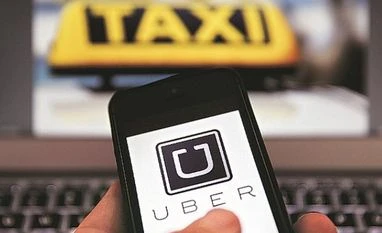Compromised data from the October 2016 attack included names, email addresses and phone numbers of 50 million Uber riders around the world, the company told Bloomberg on Tuesday. The personal information of about 7 million drivers was accessed as well, including some 600,000 US driver’s licence numbers. No Social Security numbers, credit card information, trip location details or other data were taken, Uber said.
At the time of the incident, Uber was negotiating with US regulators investigating separate claims of privacy violations. Uber now says it had a legal obligation to report the hack to regulators and to drivers whose licence numbers were taken. Instead, the company paid hackers to delete the data and keep the breach quiet. Uber said it believes the information was never used but declined to disclose the identities of the attackers.
“None of this should have happened, and I will not make excuses for it,” Dara Khosrowshahi, who took over as chief executive officer in September, said in an emailed statement. “We are changing the way we do business.”
After Uber’s disclosure Tuesday, New York Attorney General Eric Schneiderman launched an investigation into the hack, his spokeswoman Amy Spitalnick said. The company was also sued for negligence over the breach by a customer seeking class-action status.
Hackers have successfully infiltrated numerous companies in recent years. The Uber breach, while large, is dwarfed by those at Yahoo, MySpace, Target, Anthem and Equifax. What’s more alarming are the extreme measures Uber took to hide the attack. The breach is the latest scandal Khosrowshahi inherits from his predecessor, Travis Kalanick.
Kalanick, Uber’s co-founder and former CEO, learned of the hack in November 2016, a month after it took place, the company said. Uber had just settled a lawsuit with the New York attorney general over data security disclosures and was in the process of negotiating with the Federal Trade Commission over the handling of consumer data. Kalanick declined to comment on the hack.
Joe Sullivan, the outgoing security chief, spearheaded the response to the hack last year, a spokesman told Bloomberg. Sullivan, a onetime federal prosecutor who joined Uber in 2015 from Facebook, has been at the center of much of the decision-making that has come back to bite Uber this year. Bloomberg reported last month that the board commissioned an investigation into the activities of Sullivan’s security team. This project, conducted by an outside law firm, discovered the hack and the failure to disclose, Uber said.
Here’s how the hack went down: Two attackers accessed a private GitHub coding site used by Uber software engineers and then used login credentials they obtained there to access data stored on an Amazon Web Services account that handled computing tasks for the company. From there, the hackers discovered an archive of rider and driver information. Later, they emailed Uber asking for money, according to the company.
A patchwork of state and federal laws require companies to alert people and government agencies when sensitive data breaches occur. Uber said it was obligated to report the hack of driver’s license information and failed to do so. “At the time of the incident, we took immediate steps to secure the data and shut down further unauthorized access by the individuals,” Khosrowshahi said. “We also implemented security measures to restrict access to and strengthen controls on our cloud-based storage accounts.”
To read the full story, Subscribe Now at just Rs 249 a month
Already a subscriber? Log in
Subscribe To BS Premium
₹249
Renews automatically
₹1699₹1999
Opt for auto renewal and save Rs. 300 Renews automatically
₹1999
What you get on BS Premium?
-
Unlock 30+ premium stories daily hand-picked by our editors, across devices on browser and app.
-
Pick your 5 favourite companies, get a daily email with all news updates on them.
Full access to our intuitive epaper - clip, save, share articles from any device; newspaper archives from 2006.
Preferential invites to Business Standard events.
Curated newsletters on markets, personal finance, policy & politics, start-ups, technology, and more.
Need More Information - write to us at assist@bsmail.in
)